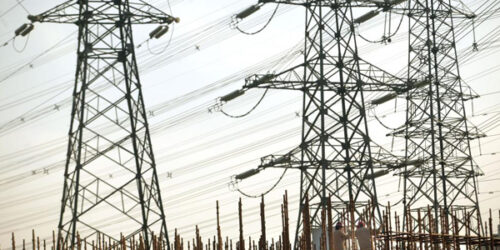Many economic observers lost sweat on the outgoing government’s relief package on electricity. The idea that the government made enough fiscal space for four months did not fly high with many. Now that the PTI is no more in power, what becomes of the relief package is the next big question. Answer to that will also depend on how long does the coalition want to run the government. If the plan is to simply introduce the electoral and accountability reforms, then there may be little to no tweaks. But if the idea is for the Assembly to complete its tenure, some tinkering is due.
Recall that the PM electricity relief package dealt with a flat reduction of Rs5/unit for all domestic and commercial consumers. This is in addition to subsidies of various kinds ranging from inter-disco tariff differential to industrial relief, that have been budgeted and provided for. What becomes of energy prices going forward? Does the PML-N have what it takes to rationalize prices – with or without the IMF? Going by the Prime Minister’s first speech in the lower house, it appears any price rationalization is off the table for now.
The Shahbaz led set up should not necessarily be termed a PML-N government, and one is not sure if the government would apply, what it believes is the best fix for the power sector. Not that it is difficult because the PML-N’s idea of fixing the power sector mess begins with a substantial reduction in energy tariffs. And that too without burdening the exchequer. Win-win – isn’t it?
The plan goes that Pakistan just needs to ensure it sells 220-230 billion of power units every year, and that will simply bring the average cost down. There will be more revenue collected and the flow of circular debt will be stemmed as well. And all of it will be done through increase in industrial consumption, which has a share of no more than a quarter in total power consumption.
There is a little problem in the plan. One, Pakistan does not need 220 billion units of electricity every year, even in a high growth scenario. Two, the system cannot generate, transmit or distribute 220 billion units a year. These are imaginary numbers, hence will never translate into substantially reduced tariffs, which according to some key members of the PML-N economic team, could be as much as Rs10/unit.
Another area that the PML-N showed intent was around privatization of distribution companies. And that was to be done simultaneously with reduction in tariff. And there was to be no distinction between good or bad ones. Well, that for sure is doable, at least possible, unlike the 220-billion-unit dream.
The only problem is that it would not be done in a government where the biggest ally is the Pakistan Peoples Party. One will wait for the Cabinet composition to comment further. Till then, it appears much of the same old could well be the order of the day.







